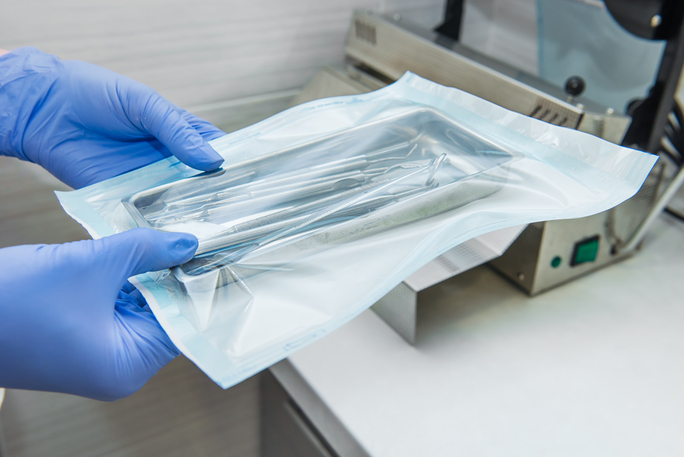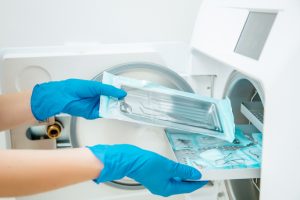What Are the Types of Sterilization in Dentistry?

As health care providers, our dental office prides itself on ensuring that your complete dental health meets the highest standards. While many offices simply focus on the appearance of your teeth or dental work, we go much further than that. One of the most critical issues that we face is ensuring that you leave our offices with a clean bill of health.
If proper hygiene standards are not met during a patient’s procedure, the unintended infection can easily be spread from your mouth into the rest of the body. That is why we ensure that every aspect of your visit helps to reduce that risk. Proper sterilization methods are an essential first step to ensuring you get the best care possible.
Infection control has always been a requirement by the Center for Disease Control (CDC). The guidelines mandate the minimum that places like dental offices and medical facilities should employ in order to keep their employees and patients as safe as possible. Not only does it keep people healthy, but infection control policies ensure a level of trust between the dental facility and the patient.
We are required to use an FDA-approved sanitization machine, known as a dental autoclave, to thoroughly sanitize all instruments and devices that are used during regular visits and procedures. Such machines must be thoroughly checked regularly to ensure that they are still working properly and sanitizing correctly.
The CDC suggests that there are three categories of patient care items. These are critical, semicritical, and non-critical. These categories are designated based on the intended use of the item and the potential for disease transmission.
Critical Items
There are several different ways that items on the critical list can be considered safe. Sterilization techniques include utilizing single-use objects. Another method of sterilization includes using heat, such as an autoclave. Heating methods of sterilization raise the temperature beyond which bacteria or viruses can survive.
Some examples of equipment that are considered critical items in the dental industry are surgical instruments or periodontal scalers. These objects are designed to penetrate the surface of the skin or come into direct contact with bone, where the disease has a higher likelihood of being spread.
Semicritical Items
Semicritical items are those that come into contact with mucous membranes, such as the mouth or nose or skin that has a rash, chapping, or abrasion. While there is a lower risk of transmission than direct skin penetration or bone contact, these areas are still at a high risk of disease transmission.
Therefore, items in the semicritical list must be sterilized either with heat or with a high-level disinfectant. Some of the dental instruments that fall into this category are the smallmouth mirrors, reusable dental impression trays, or amalgam condensers.
Additionally, because our office utilizes the most advanced dental equipment, some additional considerations are used for some of our digital or mechanized equipment. When we look to sterilize or disinfect these items, we carefully follow all of the manufacturer’s recommendations to ensure that all of our equipment is sanitary and in proper working order.
Non-Critical Items
Finally, the non-critical items present the lowest risk for disease transmission. However, just because they have the least risk does not mean that we simply disregard your care. Instead, these items are treated with a standard disinfectant. Non-critical items come into contact with skin or a patient’s clothes but are not used within the mouth. Some examples are X-ray vests or blood pressure cuffs.
Additional Considerations
While we ensure that all of our tools are properly sanitized, we strive to make sure that you have the best experience while in our care. All of the dental instruments are regularly disinfected and cleaned. We never attempt to utilize our dental autoclave equipment for items that cannot be adequately sterilized. In these instances, we purchase single-use items and properly dispose of them after they have been opened.
Our staff also receive the proper training and education to ensure that they follow all dental tool sterilization procedures. We keep on the cutting edge of technology. We have purchased the best dental autoclave on the market so that we can oversee the entire process and ensure that you are not exposed to any harmful bacteria or viruses.
Transparency is our priority. We want anyone who enters our doors to have the peace of mind that they deserve. We are happy to answer additional questions about how we manage infection control in our office. Contact us for more information and to learn about our services. We look forward to hearing from you!









